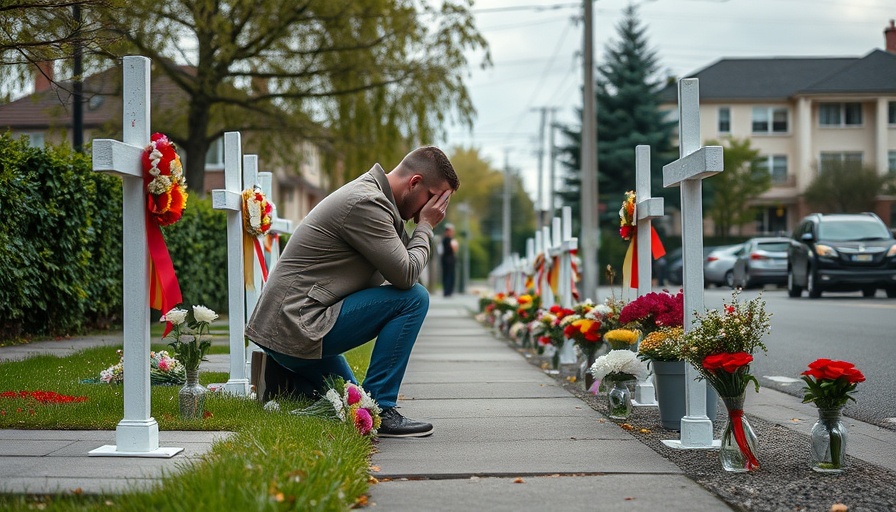
The Heart-Wrenching Tragedy in Minneapolis
This week, the nation was shocked by the devastating news of a shooting at a church in Minneapolis, where an 8-year-old and a 10-year-old lost their lives while praying. The perpetrator, Robin Westman, has brought forth uncomfortable discussions surrounding the motivations behind such heinous acts. As people grapple with the horror of this event, it forces us to confront a darker question: What drives someone to commit unimaginable violence?
Understanding the Motivation Behind Violence
Following the tragedy, various political factions have tried to assign blame—some attributing the act to the influence of transgender issues, while others suggest gun laws need to change. Mental health and antisemitism have also come under scrutiny. However, as Peter Savodnik poignantly notes, this blame game may sidestep the more disturbing truth. Might it be possible that a more subdued, all-consuming nihilism lies at the heart of such violent actions? This conviction that life lacks inherent meaning can lead individuals like Westman to adopt destructive paths.
The Role of Nihilism in Modern Society
Nihilism isn't a new phenomenon; it thrived in previous eras, often surfacing during times of social upheaval. Historically, societies riddled with uncertainty have witnessed a rise in nihilistic beliefs, leading to apathy and moral disconnection. Similarly, as we navigate through today’s political strife, social media polarization, and economic uncertainty, it may be crucial to reflect on how these factors contribute to a pervasive sense of despair.
Lessons from Law Enforcement
As a society, we must look towards those who have spent their lives combating these ideologies to broaden our understanding. Former FBI agent Pat McMonigle, with nearly two decades investigating national security crimes, highlights the importance of addressing the root of the problem rather than treating symptoms. The upbringing of individuals who carry out such actions often features neglect, societal disconnection, or exposure to violence—factors that the community must address collectively.
Broader Implications Beyond Minneapolis
The implications of this tragedy resonate far beyond the city limits of Minneapolis. The ongoing debate surrounding gun control, mental health reform, and societal values must continue with a focus on rehabilitation and connection. Families, particularly in wealthier neighborhoods like Philadelphia, can play a pivotal role. By nurturing inclusive environments and advocating for mental health support, communities could potentially steer individuals away from paths of destruction.
What Can We Do?
Ultimately, understanding the motivations behind violence requires a multi-faceted approach. Educating communities on recognizing early signs of despair or disconnection may be the first step towards preventing future tragedies. Moreover, meaningful engagement with local organizations that provide mental support and community forums can foster a culture of openness and shared responsibility.
A Call for Change
The events in Minneapolis present a grave reminder of our current societal struggles. However, they also open the door for dialogue about the deeper issues at play. As we mourn those we lost, let's not forget the power we have as individuals and communities to promote healing, understanding, and connection. By reaching out and advocating for change, we can ensure that we are not only reacting to tragedies but actively working to prevent them.
 Add Row
Add Row  Add
Add 




Write A Comment